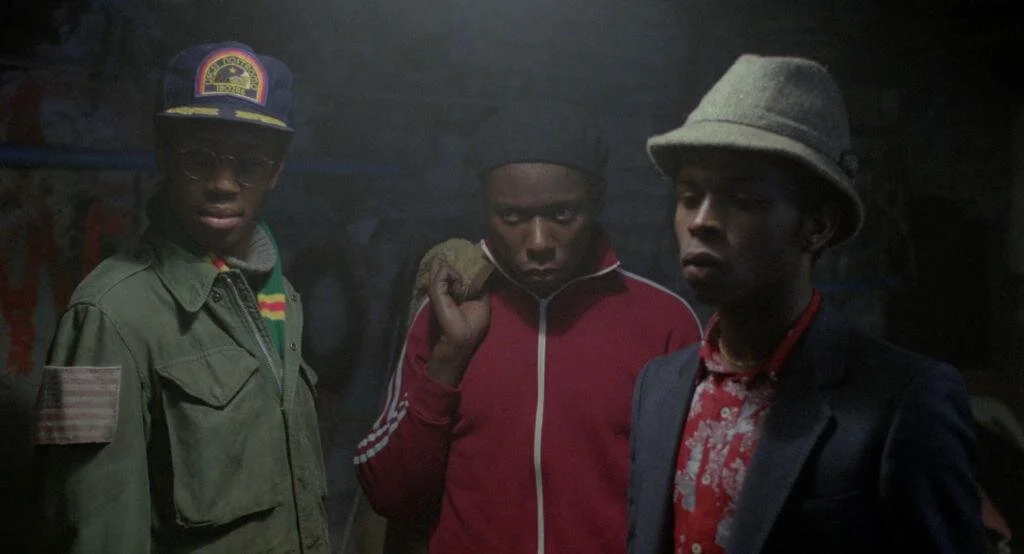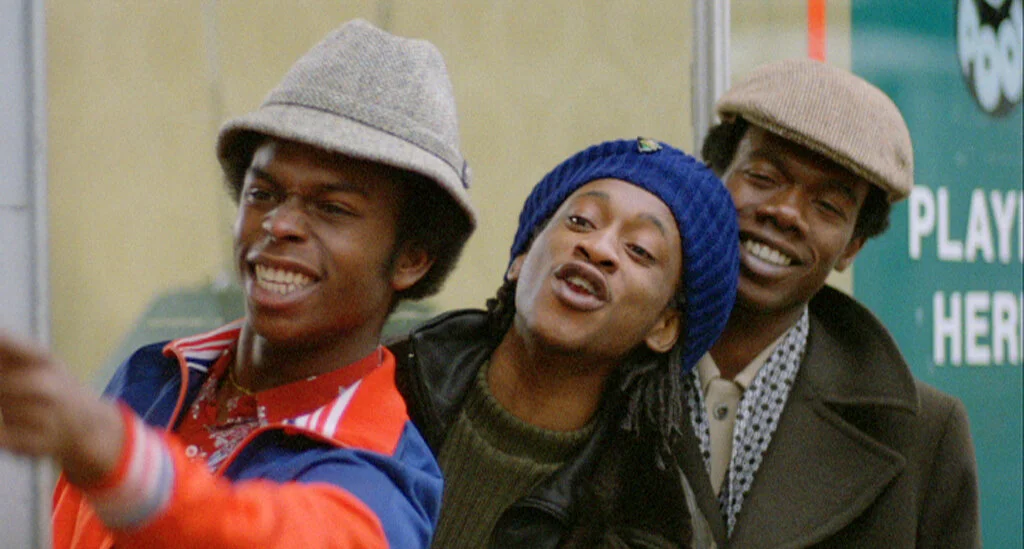
JAMAICA OBSERVER • Brinsley Forde finally sees ‘Babylon’
AFTER a 40-year wait, Brinsley Forde recently attended the premiere of the film, Babylon, in which he plays the lead role. The event took place at Brooklyn Academy of Music in New York.

VICTORIA ADVOCATE • ‘Babylon’ Review: The culturally significant 1980 British film finally arrives in the U.S. after being banned nearly 40 years ago
When Spike Lee’s “Do the Right Thing” was released in 1989 it became a voice for urban black America as it explored racial tensions with brutal honesty. Public Enemy’s anthem “Fight the Power” blazed through the opening credits with Rosie Perez throwing punches to the hip hop beat. Make no mistake this was Mr. Lee’s call-to-action.
Almost a decade earlier, Franco Rosso’s “Babylon” served as a voice for young black Londoners as it addressed racial tensions with a fearless vigor set amidst the reggae dancehall scene.

EYE FOR FILM • Your senses are there: Brinsley Forde on Franco Rosso, ‘Babylon’ and present day England
Franco Rosso's powerful feature, with the camerawork of Chris Menges and a score by Dennis Bovell, takes you upfront into a world of survival that remains relevant today. Brinsley brings Babylon into present day England and we discuss the fashion of the time when the filming was taking place.

THIS WEEK IN NEW YORK • ‘Babylon’
One of the best, and most important, British films of the last forty years took the long route to reach America, but it’s finally here, and it’s a knockout.

FILM-FORWARD • ‘Babylon’
Babylon’s place in British film history is significant. After winning acclamation at the 1980 International Critics’ Week in Cannes, it was released in England with an X rating and was dropped by the New York Film Festival, deemed too controversial for American audiences.

KPCC • FilmWeek: ‘Five Feet Apart,’ ‘Wonder Park,’ ‘The Mustang’ and more
Reviews of the week's new movies, interviews with filmmakers, and discussion.

LOS ANGELES TIMES • Review: ‘Babylon,’ a legendary look at South London's reggae scene, finally gets a U.S. release
Like a speaker blast from a not-exactly-distant past, the 1980 British film “Babylon” is only now getting an inaugural American release, and its late arrival is a welcome one in this era of long-overdue, jump-started representation in cinema. Franco Rosso’s film, co-written with Martin Stellman (“Quadrophenia”) and starring Aswad frontman Brinsley Forde, is a raw, propulsive and authentically music-driven glimpse of South London black culture in the pressurized hot zone of Thatcherite England. (It has frequently been called the U.K.’s own “The Harder They Come.”)

VICE • ‘Babylon’: The Film Banned in America for Being Too Honest
Actor Brinsley Forde on the UK classic that gave black London a voice.

HYPERALLERGIC • A Cult Reggae Classic Deemed “Too Controversial” Finally Gets US Release
Babylon (1980) portrays Jamaican musical collectives, called sound systems, as movements of decolonization and resistance.

MUBI • ‘Babylon’: I'm a Legal Alien in London
Franco Rosso's landmark immersion into London's Jamaican-British community has been restored and rereleased.
